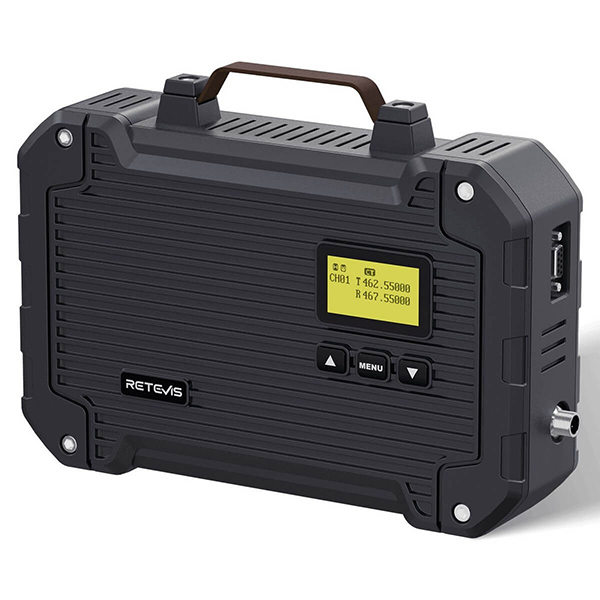Understanding the Role of a Radio Duplexer in Your Repeater System

Understanding the Role of a Radio Duplexer in Your Repeater System
When building a reliable GMRS repeater system for outdoor adventures, emergency communications, or off-grid living, one component plays a critical yet often overlooked role: the radio duplexer. This essential device makes modern repeater systems like the popular RT97L portable repeater possible, especially when combined with features like 25W power output and IP66 waterproof protection.
What Is a Radio Duplexer?
A duplexer is a specialized filter that allows:
-
Simultaneous transmission and reception on a single antenna
-
Separation of closely spaced frequencies
-
Prevention of transmitter interference with the receiver
Key Benefits of Using a Duplexer:
-
Eliminates the need for two separate antennas
-
Reduces system complexity and physical footprint
-
Improves overall signal quality
-
Essential for IP66-rated waterproof enclosures where multiple antennas would compromise protection
How Duplexers Work in GMRS Repeater Systems
In a typical 25W GMRS repeater setup:
-
The duplexer filters incoming signals to the receiver
-
Simultaneously filters outgoing signals from the transmitter
-
Maintains isolation between transmit and receive paths
-
Enables full-duplex operation (talking and listening at the same time)

- RT97L
The RT97L: A Perfect Example of Duplexer Integration
The RT97L portable repeater showcases excellent duplexer implementation:
-
Compact all-in-one design made possible by internal duplexing
-
IP66 waterproof rating achievable with single-antenna configuration
-
Efficient 25W operation with minimal signal loss
-
Plug-and-play simplicity thanks to pre-tuned duplexer
Choosing the Right Duplexer for Your System
Consider these factors when selecting a duplexer:
-
Frequency Separation - Matches your specific GMRS channels
-
Insertion Loss - Lower is better
-
Power Handling - Must exceed your transmitter's 25W output
-
Environmental Protection - IP66 rating for outdoor installations
Installation Best Practices
For optimal performance:
-
Mount the duplexer as close to the antenna as possible
-
Use high-quality, low-loss coaxial cables
-
Ensure proper spacing from other electronics
-
Regularly inspect connections, especially in IP66 enclosures
Why Duplexers Matter for Reliable Communication
Without a quality duplexer:
-
Your 25W transmitter could overload the receiver
-
Signal quality would degrade significantly
-
The system couldn't maintain simultaneous transmission/reception
-
Waterproof enclosures would require more complex designs
Maintenance Considerations
Even in IP66-rated systems like the RT97L:
-
Periodically check for water intrusion
-
Monitor for changes in system performance
-
Have a qualified technician service the duplexer annually
-
Keep connections clean and protected
Conclusion
The radio duplexer serves as the unsung hero in modern repeater systems, enabling the compact, efficient designs we rely on for emergency communications and outdoor adventures. Whether you're using a portable RT97L or building a custom 25W GMRS repeater with IP66 waterproof protection, understanding and properly implementing this critical component will ensure reliable performance when you need it most.
By appreciating the role of duplexers, you can:
-
Make informed equipment choices
-
Troubleshoot system issues more effectively
-
Maximize the performance of your investment
-
Maintain reliable communications in any conditions






